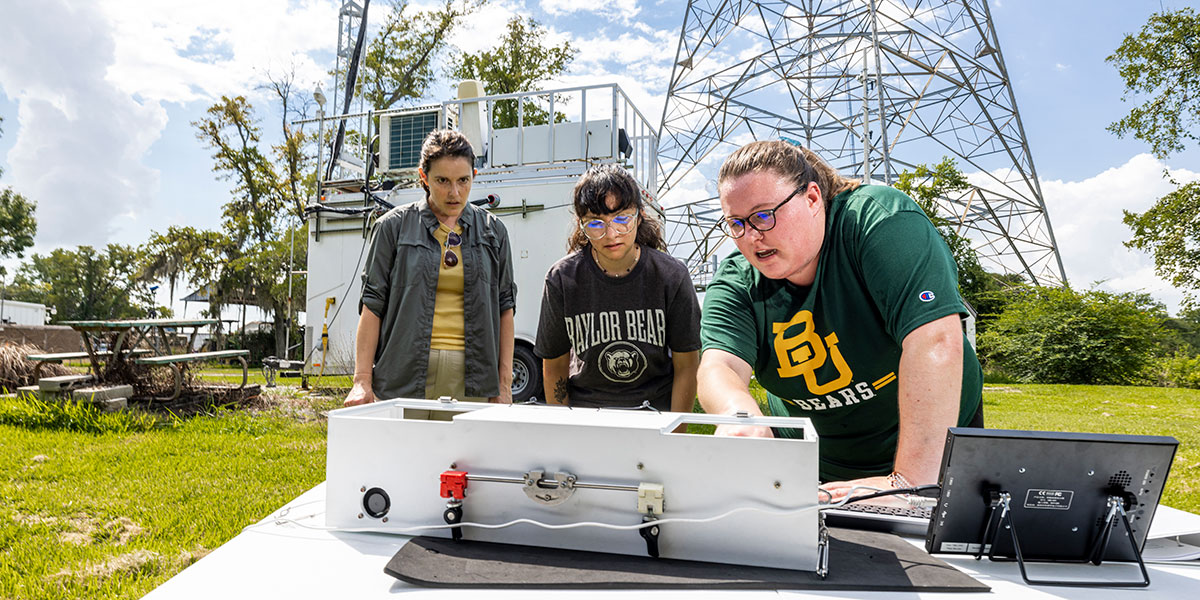Two years after reaching R1, Baylor’s research momentum continues to grow

It’s been almost two years since Baylor reached elite R1 recognition. But that milestone wasn’t a finish line; instead, it’s been a springboard toward accomplishing even more.
Here’s just a sampling of the major research projects and honors at Baylor from recent months, showing the wide array of disciplines and approaches found across the university:
— Baylor professors are unlocking new understandings and treatments for diseases. For instance: Dr. Daniel Romo, the Schotts Professor of Chemistry at Baylor, is part of a team pursuing a groundbreaking drug to treat hypoxic-ischemic brain injury, which affects approximately 2 in every 1,000 U.S. newborns. Romo provides synthetic chemistry leadership for an international team of researchers pursuing the treatment. Romo’s colleague, Dr. Michael Trakselis, has long studied a DNA enzyme linked to infertility and different forms of cancer. Fifteen years of research has led to a breakthrough — greater understanding of how the enzyme works and how mutations may be related to disease.
— Siblings of individuals with developmental disabilities like autism can find more ways to support their loved one. That’s thanks to Dr. Jessica Akers, assistant professor of educational psychology. Akers, who has her own siblings with developmental disabilities, has developed innovative treatment models focused on improving interactions among siblings, who generally have the longest familial relationships. Her work was supported by a nearly $900,000 grant from the Texas Higher Education Coordinating Board.
— Baylor is now the home of a cybersecurity training and research center. The Central Texas Cyber Range was dedicated in September, a $3.5 million facility providing comprehensive resources to address cybersecurity needs through workforce development and research in the cybersecurity field.
— Schoolchildren in Waco and beyond will have greater access to mental health care resources. Carrie Arroyo and Mary Zane Nelson (BSW ’08, MSW ’10) in Baylor’s Garland School of Social Work earned a $2.5 million grant from the U.S. Department of Education to build training and curriculum for the next generation of school-based mental health professionals — with that work taking place in Waco ISD and Transformation Waco schools.
— A Baylor professor is playing an important role in launching NASA’s next flagship project. Dr. Ben Rose, assistant professor of physics, is one of four project leaders providing infrastructure support for the Nancy Grace Roman Space Telescope, which can provide the same quality images as the Hubble Space Telescope — but 1,000 times faster.
— Baylor’s Global Flourishing Study — the largest research project in Baylor history — is already beginning to produce dividends. The study, which began in 2021, released its first wave of data in August, allowing researchers to begin developing informed hypotheses on what the project will ultimately find.
As Baylor builds on this momentum, we will continue to see the dividends from research marked by quality, visibility and impact, imbued with the sense of mission that BU faculty bring to their work.
Sic ’em, Baylor researchers!

